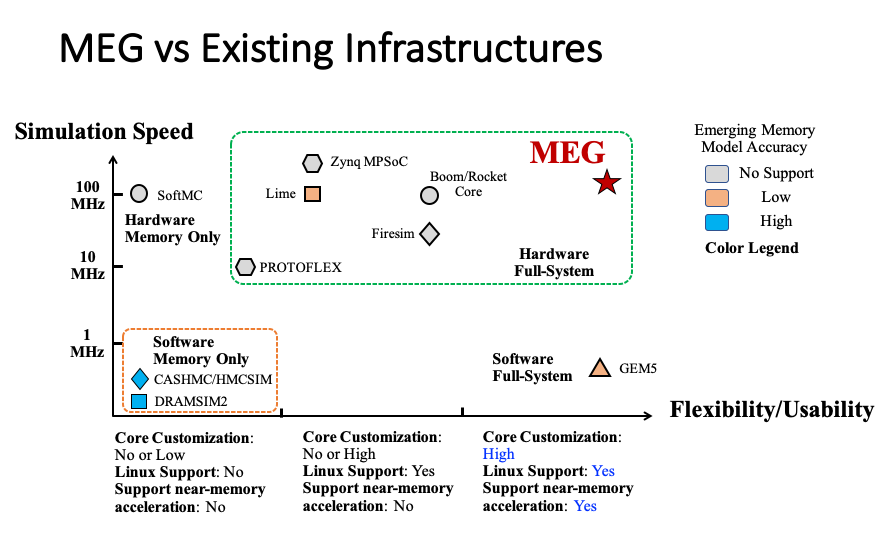Hardware-software co-design studies targeting next-generation computer systems that are equipped with emerging memories (HBM/HMC, NVM, etc.) are fundamentally hampered by a lack of scalable, performant and accurate simulation platform. Using software simulator is fundamentally bottlenecked by the low simulation speed and low fidelity, making it impractical to run realistic software stack. Such a challenge has limited effective cross-stack innovations (across computer architecture, OS, compiler, machine learning, and domain sciences). Past efforts have largely focused on simulation infrastructure for processor cores with highly simplified models of the memory subsystem. As a key contribution to the community (including SRC JUMP centers, broad academia and industry) to better drive cross-stack memory system research, we have been developing MEG [Zhang2019FCCM] – an open source FPGA- based simulation platform that enables cycle-exact micro-architecture simulation for computer systems with a special focus on memory subsystem (heterogeneous memory, near/in-memory acceleration). In MEG, we combine silicon- proven RTL design of RISC-V cores with configurable heterogeneous memory subsystems (HMC/HBM/NVM). It is capable of running realistic software stacks including booting Linux and comprehensive application software with high fidelity (cycle-exact microarchitectural models derived from synthesizable RTL), flexibility (modifiable to include custom RTL user IP and/or more abstract models), reproducibility, observability, target software support and performance. MEG can be an effective complement to previous RAMP and more recent Firesim projects in covering memory space and a contribution to the open source RISC-V community.

MEG
Posts
Our RISC-V paper got accepted at FCCM’19 and nominated Best Paper
Our RISC-V paper got accepted at FCCM’19 and nominated Best Paper. Congrats to all the authors!
Publications
MEG: A RISCV-based system simulation infrastructure for exploring memory optimization using FPGAs and Hybrid Memory Cube (Best Paper Nominee)
Emerging 3D memory technologies, such as the Hybrid Memory Cube (HMC) and High Bandwidth Memory (HBM), provide increased bandwidth and …